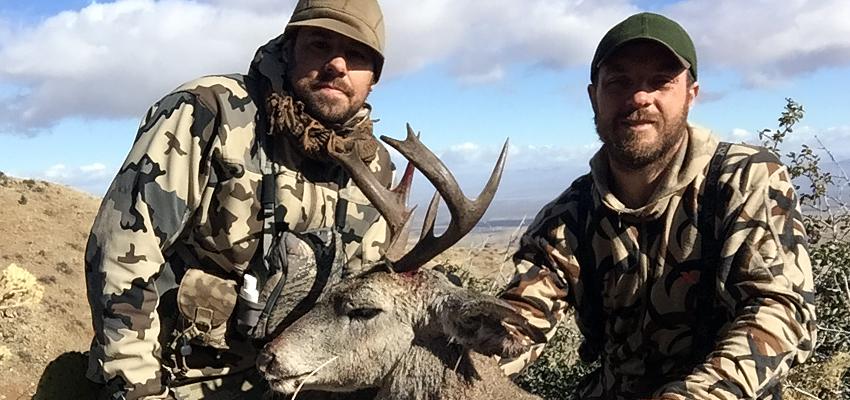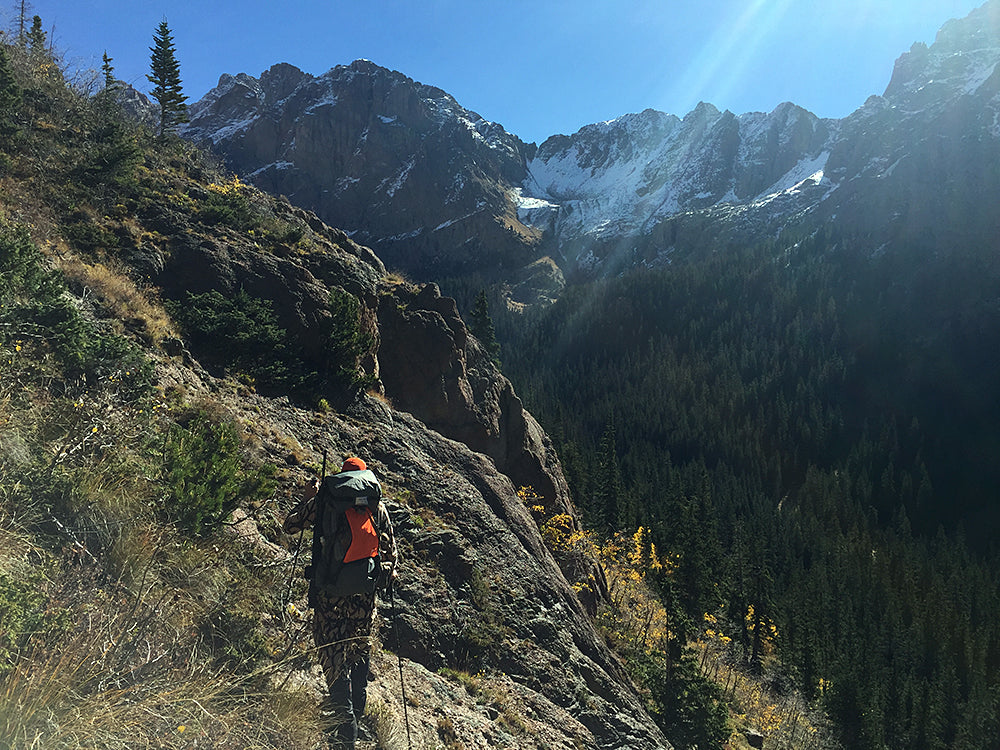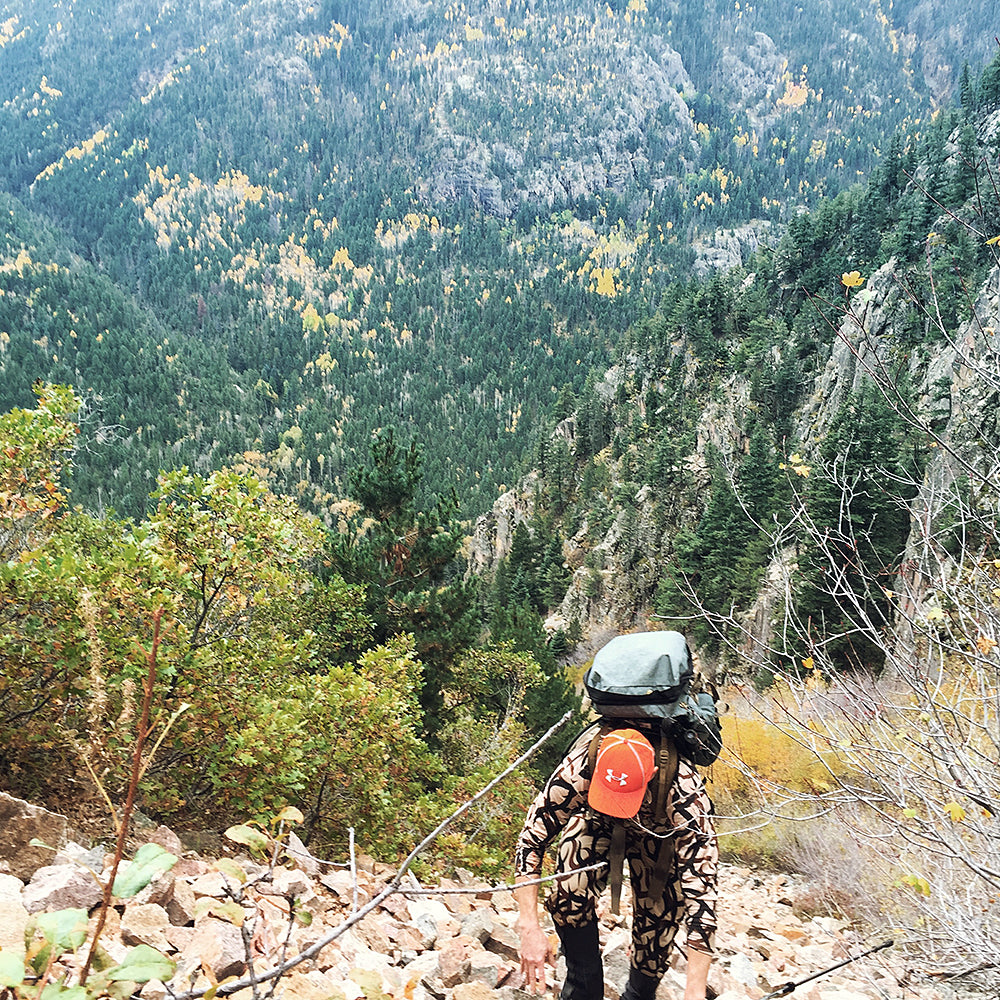
In the 1960s, there was a popular though somewhat controversial idea amongst psychologists that sibling order expressed tremendous influence upon social structure and relationship functions. For example, younger brothers of older brothers had tendencies to seek camaraderie with older men since their understanding of human relationships was formed through guidance from an older brother or brothers. Similarly, a younger brother of older brothers was considered to be a poor romantic pairing with a younger sister of older sisters since both would be looking to receive guidance in the relationship.
Delving into the psychology of choosing partners for adventure, be it backcountry hunting or otherwise, there are important considerations to be made if you desire to have healthy, functional and enjoyable experiences. To begin, if you consider how much time and space you will be spending with a person (or persons) on a backcountry hunting trip, personality frictions can arise from these factors alone. Throw in some stress, anxiety and complications associated with backcountry adventures, and a partnership can take a nosedive South in no time. There could be the financial stress associated with the cost of the trip in relation to expectations for success. There could be anxiety associated with being away or out of communication with family and work obligations. Physical stress associated with fatigue, health and altitude might contribute negatively to the experience. While there are certainly factors that can arise in untested backcountry partnerships that you could in no way anticipate, there are personality characteristics one should look for before committing to a hunt with a new partner, regardless of their experience level.

Often under such conditions, personality types will become more intense. A person who has a tendency to be lazy, uncommitted or unmotivated will become more so. An introvert may become increasingly aloof. An extrovert will talk even more. An alpha will become more aggressive and less compromising. An analytical type can work themselves into a state of constant second guessing while an intuitive, whimsical person might bite off more than they can chew without thinking a situation through. You may also consider that, when put to the test, “armchair bravado” could be masking or compensating for potential shortcomings.
Generally, what you want to look for is a personality combination that will complement each other in a fundamental and agreeable manner through sustained stress. Do you have compatible mindsets when it comes to goals surrounding backcountry adventure? The more off the grid type of hunting trip, the more more important and intensified these factors will be. An obsessive, calculating type might be best balanced out with a spontaneous, intuitive hunting partner. A person easily frustrated by unpredicted outcomes may be best balanced out by a partner who finds humor in those same types of circumstances. While certainly there are direct ways to vett a potential hunting partner’s experience, how well you work together is often going to be an unknown and not necessarily related to each individual’s skill as a hunter. This is a particularly important factor for flatlanders agreeing to partnerships for Western hunting adventures since a hunter’s prowess in a treestand is in no way an indicative of how they will perform physically or psychologically in the mountains of the West.
On a remote mountain hunt in the rugged San Juans, a partner and I found ourselves in a late night state of depletion after finishing with an elk butchering job. Having been out of food for hours and looking at a 4+ hour hike back to camp through very technical and difficult terrain, we took a gamble and decided to try following a river drainage back down the mountain as a means to circumvent difficult climbing, side hilling and scree slopes. Our decision quickly turned into a nightmare of an ascent as we found ourselves increasingly over committed in a steep, inescapable canyon with a raging torrent of a river. We were forced to cross the river 25+ times, rock hopping through class 5 rapids, picking our way through log jams and avalanche debris, making irreversible and totally committing moves down waterfalls on slick, polished granite. We were trapped with no other option but to go down on a dark night by the light of our headlamps. It was just the type of high stress scenario that causes some people to become frustrated, seize up in fear or indecision, or become totally unglued. Thankfully, my hunting partner and I possessed the right personality combination to deal with the situation for what it was. Stress was high, but managed. We returned to camp safely at 4:30 AM after more than 24 hours on the go.

In another adventure partnership, I found myself on a trip with a cloyingly over energetic partner. In the morning, I’m a coffee and hot breakfast kind of guy. I like a little time to wake up and require some caffeine and fuel in the tank. My partner, who was not a coffee drinker, was more than eager to choke down some peanut butter while lacing up his boots and ready to hit it within mere minutes of waking up. In anticipation of this tendency, I would wake up 30-45 minutes before our agreed upon departure time, but this would only wake him and find him itching to go while I’m still boiling water. I found myself in a situation where my partner was experiencing stress and anxiety while waiting for me to get going in the morning and there did not seem to be anything I could do to accommodate him short of immediately charging up the mountain sans coffee and breakfast. It was a short lived partnership.
You may also find that your role shifts somewhat daily depending on the demands of the situation. You may be the pacesetter one day and find yourself struggling with altitude symptoms the next, relying on your partner’s pace, encouragement, personal jabs, empathy (or lack thereof) in order to stay motivated.
General Agreements:
- Agree on the duration of the trip and what happens if one or all parties tag out early. A good friend of mine painstaking planned a week long elk hunt that consisted of a party of four. Three of the four tagged out on the first day of the season. When my friend returned to camp after a long second day of hunting, he found camp fully disassembled and a mutiny on his hands as the rest of his party was ready to hit the road for a 20 hour drive back home. The obvious caveat concerning a premature departure would be injury or illness.
- If you are hunting as a team and multiple parties possess tags, you may need to agree on who shoots first. This could be a situation that changes daily. If you do not have some kind of agreement in place here, you may find yourself surprised how intense self interests can suddenly emerge.
- Once an animals is down, agree ahead of time on how the butchering and pack out will be handled. This could be less of an issue for a Whitetail or Goat, but a critical agreement regarding Elk or Moose. It may be that your party needs an agreement that no more hunting takes place until the meat is deboned, bagged and transported to a specific location, be it a cooler, a creek or a game processor.
- Agree on how the meat will be divided in the event that only one party is successful.
- Finally, agree how travel costs will be split and, if long drives are involved, how driving duties will be divided. Do not underestimate this aspect.
Spending days on end in close quarters with another individual is not necessarily an easy thing to do. In order to avoid an uncomfortable silence on a long drive home, some of the best advice that I can offer is to be fully conscious and aware of what effects your actions and attitude are having upon your hunting partner. While certainly a person who requires coddling is not a good candidate for a backcountry adventure partnership, failure to adjust to the social dynamics of the situation or taking more than you are contributing is the difference between telling a horror story about a trip gone wrong and describing the epic experience of a hunt of a lifetime.
With a taste for wild meat, misadventure and the art of suffering, Christian Brooks often goes hunting for all three and occasionally blogs about it.
